
by Alissa Ordabai
– Sr. Columnist —

Two weeks before Donald Trump became the 45th president of the United States, I had a conversation with an A-list classical musician on whether it was appropriate for artists to voice their political opinions in public. My interlocutor was saying that classical music had never been a politically active environment. I responded that this kind of inertia was turning into a global entrainment industry trend — even rock musicians nowadays prefer not to rock the proverbial boat.
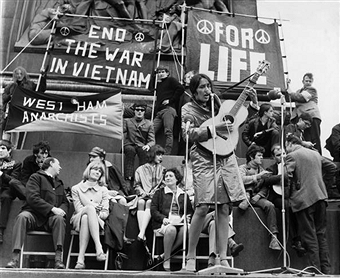 If we compare 2017 with half a century ago, the landscape is now unrecognizable. Back in 1967 the most famous musicians on the planet spoke openly and bluntly against the Vietnam war and advocated social change. Today rock stars in private conversations admit they don’t speak out on political issues because they fear repercussions. And the reason is not just the overall political climate, but the way profit-oriented managers advise their clients.
If we compare 2017 with half a century ago, the landscape is now unrecognizable. Back in 1967 the most famous musicians on the planet spoke openly and bluntly against the Vietnam war and advocated social change. Today rock stars in private conversations admit they don’t speak out on political issues because they fear repercussions. And the reason is not just the overall political climate, but the way profit-oriented managers advise their clients.
The conventional consensus among music managers and PR professionals — in all genres of music — is to caution their clients against expressing divisive opinions. Speaking publicly about politics is the biggest no-no, but the approach goes further: “Never bad-mouth another group or another performer,” a manager would say to a young musician. “Never make your fans choose between you and another artist.” The rationale is obvious: by alienating a section of your fan base you are reducing your income from record and ticket sales.
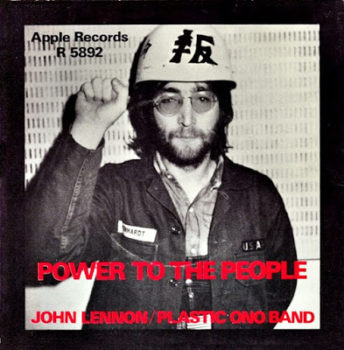 So two questions arise here: Can your political opinions really deter people from buying your music and if so, what actual impact will this have on your career?
So two questions arise here: Can your political opinions really deter people from buying your music and if so, what actual impact will this have on your career?
As with everything in entertainment, the key question is “Who,” not “What,” “How,” or “When.” The consequences of going public with your views will largely depend on your status. “What is permissible for Jove is not permissible for a bull,” the saying goes. John Lennon’s popularity, sales, and his cultural icon status remained constant, regardless of how strongly he spoke out against the British and the American establishment.
Actually, John Lennon fans these days include some of the most conservative people in the world — among them heads of state, police chiefs, and judges in countries known for horrific human rights abuses. Lennon’s opinions about freedom of speech and humanitarian issues haven’t deterred them one iota from purchasing and enjoying his music.
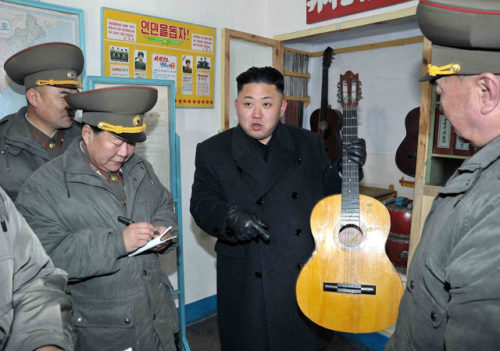
There are also examples of smaller careers and niche acts voicing bold opinions while keeping their entire fan base intact. Al Jourgensen of rock band Ministry recorded three anti-Bush albums from 2007 to 2010 and called George W. Bush an “idiot” and a “puppet head” in interviews. These days Jourgensen remains as popular as ever, packing arenas and maintaining his career of a cult performer and composer.
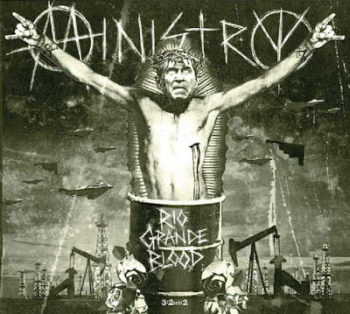 One might say that Jourgensen knew from the outset that he’d be immune to consequences: the kind of music he performs (industrial metal), like all progressive genres, attracts people with progressive social views.
One might say that Jourgensen knew from the outset that he’d be immune to consequences: the kind of music he performs (industrial metal), like all progressive genres, attracts people with progressive social views.
But what if a young pop starlet suddenly started coming forward with criticisms of the current U.S. administration? Here another show biz adage comes to mind: all PR is good PR. Would some radio stations refuse to play the music? Of course. But the fans you lose this way will add you fans among a different demographic, and your losses and gains will be in equal numbers.
Being shunned by your peers and losing some of your professional support network is another damper often brought up by managers who want to steer their artists clear of trouble. But the past couple of years have shown that this too is unlikely to happen. Several prominent rock musicians of great professional repute are now supporting all of Donald Trump’s initiatives on social media (one of these musicians — curiously — even thinks that the word “vermin” is an appropriate way to describe Syrian refugees). The result? None. All of their peers are happy to continue to collaborate, tour, and record with them, even those who have Mexican wives and children who are half-Mexican.
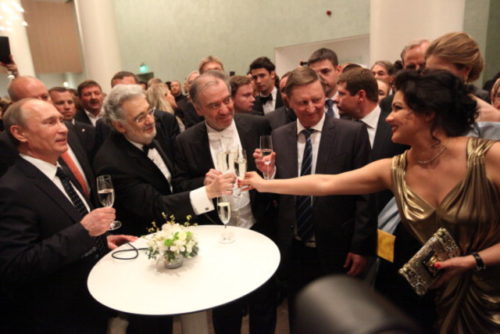
In the world of classical music, superstars such as Valery Gergiev — one of the leading conductors of our time — who supports Vladimir Putin’s policies in Ukraine and Russia’s anti-gay laws — as well as Putins’ staunch supporter opera diva Anna Netrebko, continue to enjoy engagements at world’s most prestigious halls and opera houses, with the most prestigious orchestras. Their careers haven’t suffered despite occasional small protests outside of venues where they perform. Their concerts remain sold out and donors continue to back them.
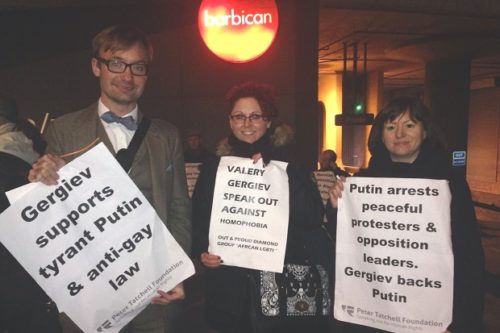
While Gergiev and Netrebko lavish praise on Putin without going into a lot of analysis, celebrated violinist Gidon Kremer who holds opposing views to those of Gergiev and Netrebko, sums up the dilemma more eloquently: “Every one of us is a citizen of his homeland, and every one of us is responsible for the state of this land. And here, then, is your answer to the eternal question: ‘What must be done?’ Switch off the brainwashing TV screens. Instead, take look at yourself. Follow your conscience – do not try to run from it. Do not fool yourself into thinking that there is no place, no role for conscience in our lives anymore.”
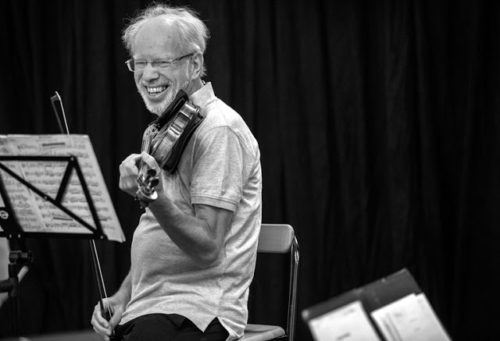
Born in the Soviet Union, Kremer knows only too well that artists are usually among the first to perish when dictatorships come to power. But the notion of giving up one’s responsibilities as a citizen — just because the ticket-buying public views you as an entertainer — as absurd not only to Kremer or Jourgensen, but a lot of younger musicians as well, including the world of pop music.
In today’s Western world, where speaking publicly on political issues will not put any artist in danger — compared to musicians in, say, places like Iran, where you can go to jail for being in a rock band — the issue seems somewhat contrived. Far from being hazardous to your wellbeing, being vocal about politics when you are a musician living in the West will not even cost you a penny. And if the choice is between exercising your full citizen rights and worrying about losing a few admirers, the only advice that managers should be giving to their artists is to trust their fans, to trust their own higher instincts, and to believe in freedom of expression.
[Sydicated post from Backstage Workstation blog. Republished with permission. Original post can found http://backstageworkstation.blogspot.com/. Copyright Alissa Ordabai, All Rights Reserved.]



